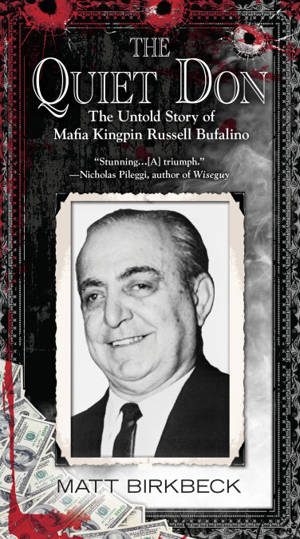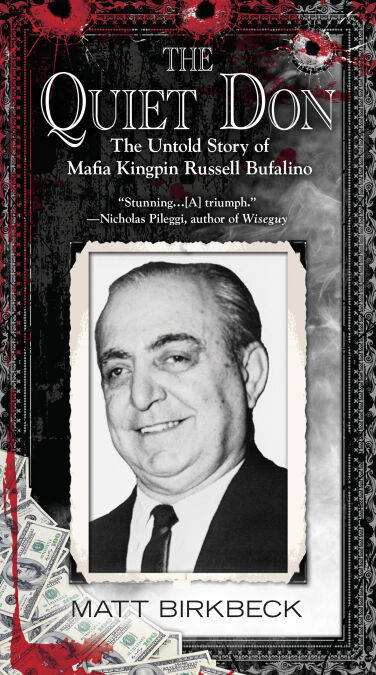
- Afhalen na 1 uur in een winkel met voorraad
- Gratis thuislevering in België vanaf € 30
- Ruim aanbod met 7 miljoen producten
- Afhalen na 1 uur in een winkel met voorraad
- Gratis thuislevering in België vanaf € 30
- Ruim aanbod met 7 miljoen producten
Zoeken
The Quiet Don E-BOOK
The Untold Story of Mafia Kingpin Russell Bufalino
Matt Birkbeck
E-book | Engels
€ 10,83
+ 10 punten
Uitvoering
Omschrijving
To what extent was Rosario “Russell” Bufalino involved in the disappearance of Jimmy Hoffa in 1975? In the CIA’s recruitment of gangsters to assassinate Fidel Castro? In organizing the historic meeting of crime chieftains in 1957? Even in the production of The Godfather movie?
A uniquely American saga that spans six decades, The Quiet Don follows Russell Bufalino’s remarkably quiet ascent from Sicilian immigrant to mob soldier to a man described by a United States Senate subcommittee in 1964 as “one of the most ruthless and powerful leaders of the Mafia in the United States.”
Secretive—even reclusive—Russell Bufalino quietly built his organized crime empire in the decades between Prohibition and the Carter presidency. His reach extended far beyond the coal country of Scranton, Pennsylvania, and quaint Amish farms near Lancaster. Bufalino had a hand in global, national, and local politics of the largest American cities, many of its major industries, and controlled the powerful Teamsters Union. His influence also reached the highest levels of Pennsylvania government and halls of Congress, and his legacy left a culture of corruption that continues to this day.
INCLUDES PHOTOS
A uniquely American saga that spans six decades, The Quiet Don follows Russell Bufalino’s remarkably quiet ascent from Sicilian immigrant to mob soldier to a man described by a United States Senate subcommittee in 1964 as “one of the most ruthless and powerful leaders of the Mafia in the United States.”
Secretive—even reclusive—Russell Bufalino quietly built his organized crime empire in the decades between Prohibition and the Carter presidency. His reach extended far beyond the coal country of Scranton, Pennsylvania, and quaint Amish farms near Lancaster. Bufalino had a hand in global, national, and local politics of the largest American cities, many of its major industries, and controlled the powerful Teamsters Union. His influence also reached the highest levels of Pennsylvania government and halls of Congress, and his legacy left a culture of corruption that continues to this day.
INCLUDES PHOTOS
Specificaties
Betrokkenen
- Auteur(s):
- Uitgeverij:
Inhoud
- Aantal bladzijden:
- 304
- Taal:
- Engels
Eigenschappen
- Productcode (EAN):
- 9781101618264
- Verschijningsdatum:
- 30/09/2013
- Uitvoering:
- E-book
- Beveiligd met:
- Adobe DRM
- Formaat:
- ePub

Alleen bij Standaard Boekhandel
+ 10 punten op je klantenkaart van Standaard Boekhandel
Beoordelingen
We publiceren alleen reviews die voldoen aan de voorwaarden voor reviews. Bekijk onze voorwaarden voor reviews.








